
James Earl Jones, the beloved stage and screen actor who lent his iconic, deep voice to Darth Vader in Star Wars and Mufasa in The Lion King, has died at 93.
Regarded as one of the best actors of his generation, Jones’ career spanned Shakespeare to Hollywood hits. He is one of the few actors to have won an Emmy, Grammy, Oscar, Tony Award.
The actor’s death was reported by Deadline, via his representatives at Independent Artist Group.
James Earl Jones was born January 17, 1931 in Arkabutla, Mississippi and raised by his grandparents in Dublin, Michigan. While he would later become one of the most famous voices in the world, he says he suffered from a stutter in his youth.
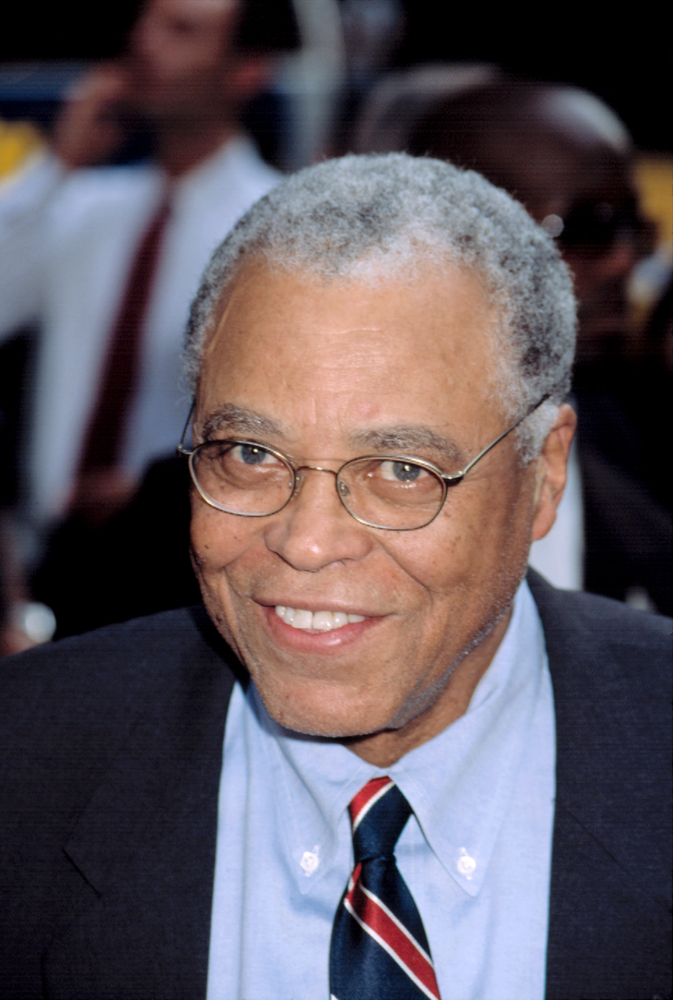
“I was a stutterer. I couldn’t talk,” Jones recalled in a 1996 interview. “So my first year of school was my first mute year, and then those mute years continued until I got to high school.” A teacher encouraged him to overcome his stutter by reading poetry aloud.
Jones served in the US Army during the Korean War, and after decided to pursue a career in acting. He studied at the American Theatre Wing, working as a janitor to support himself. By the 1960s, Jones was establishing himself as one of his generation’s great Shakespearean actors, playing roles like Othello and King Lear. He also made his film debut in Stanley Kubrick’s classic 1964 comedy Dr. Strangelove, as bombadier Lt. Lothar Zogg.
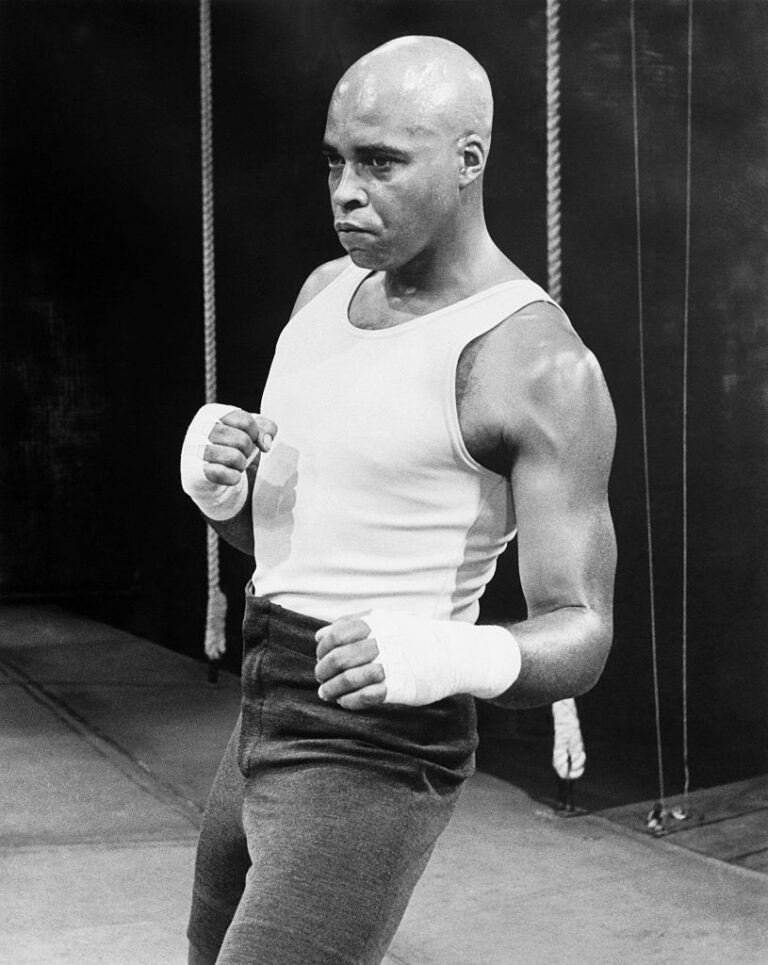
In 1967, he played a boxer in The Great White Hope, winning the Tony Award for Best Actor in a Play. He reprised the role in the 1970 film version, receiving his first Academy Award nomination.
Amidst all his acclaimed acting work, Jones soon landed his most well-known and iconic role — one where he didn’t even have to appear on set: voicing the villainous Darth Vader in Star Wars. While Vader was played in costume by David Prowse, Jones dubbed over the lines with his own deep bass voice, helping to create one of the most famous characters in movie history.
While Jones originally opted to go uncredited for the role, it has become perhaps his most famous performance. He continued to voice Vader for decades, in the two sequels The Empire Strikes Back and Return of the Jedi, the prequel Revenge of the Sith and the spin-off Rogue One. In 2022, Jones retired from the role, but signed an agreement for his voice to be used in future projects using artificial intelligence and archive recordings.
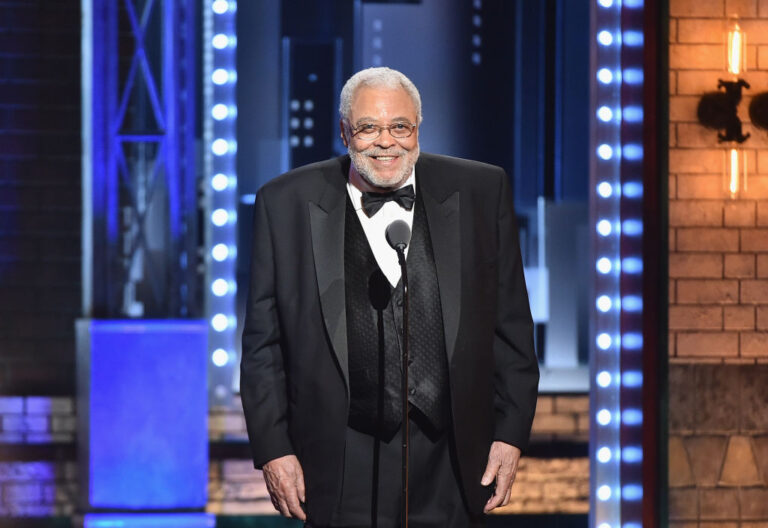
Jones also provided the voice of another beloved movie character, Mufasa in the 1994 Disney film The Lion King. Jones later reprised the role in the 2019 remake.
Throughout the ’80s and ’90s, Jones appeared in many Hollywood films, including Conan the Barbarian, Coming to America, Field of Dreams, and The Hunt for Red October, Patriot Games and The Sandlot. He also won his second Tony Award, starring in the original production of August Wilson’s Fences.
He received eight Emmy Award nominations for his television work, winning twice in 1991: Outstanding Supporting Actor in a Limited Series or Movie for Heat Wave and Outstanding Lead Actor in a Drama Series for Gabriel’s Fire.
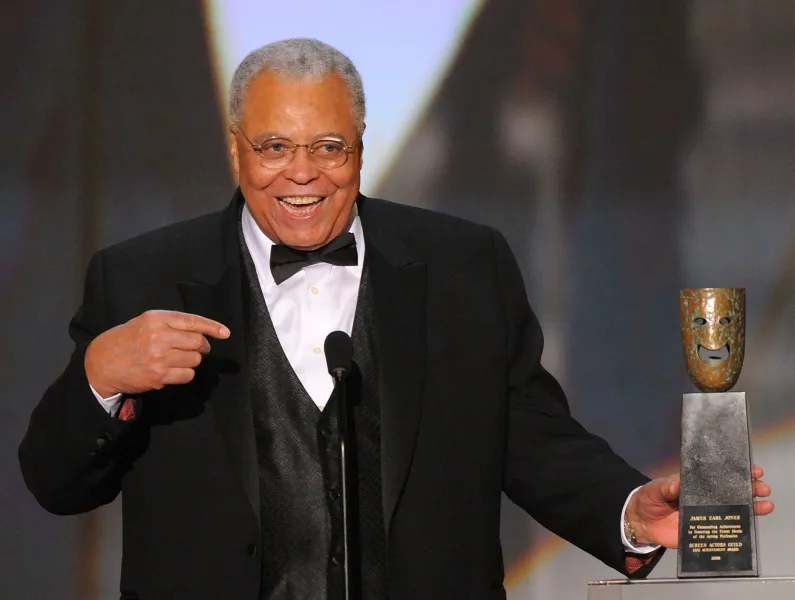
Jones also continued to perform on Broadway: over the past 20 years he starred in revivals of On Golden Pond, Cat on a Hot Tin Roof, Driving Miss Daisy, The Best Man and You Can’t Take it With You.
Jones was the recipient of many awards and honors throughout his acclaimed career. He received an Honorary Academy Award in 2011, making him one of the only people to have won an Emmy, Grammy, Oscar and Tony Award, known as “EGOT.” Broadway’s Cort Theatre was renamed the James Earl Jones Theatre in his honor in 2022.
Rest in peace to the iconic James Earl Jones, one of the greatest actors of our time — please share this
Why Michael Jackson Wore Smaller Clothes at the End of His Shows (and 8 More Revelations About His Costumes)
Michael Jackson was a picky dresser, and he wanted to stand out. That’s why his costumes had a lot of details that made everyone wonder why they were there and what they meant. For example, almost every jacket Michael Jackson wore had an armband on the right sleeve, and some of his jackets also had “777” sewn onto them.
We at Bright Side are fascinated with Michael Jackson`s wardrobe, and we`re ready to reveal some of the secrets behind his costumes!
1. Why he wore smaller costumes at the end of his shows
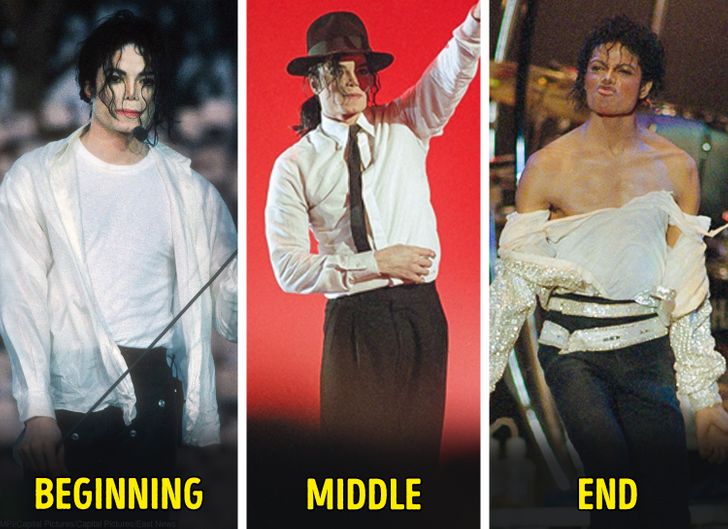
Michael Jackson`s dance routines were very physically strenuous, and he gave his all during his performances. By the end of the show, he would often lose up to 5 lbs, and his waist would become one inch thinner. And since it was important that his clothes fit perfectly, so that he could show off his dance moves, every next costume was a bit smaller than the previous one.
2. How his lean shoes worked

Michael Jackson`s shoes that helped him defy the laws of gravity had a V-shaped clasp at the bottom of the heels. With its help, he could hook into a nail attached to the floor and perform his famous 45-degree forward tilt. However, to be able to do that and to keep his whole body straight, an incredible amount of core and leg strength was also needed.
3. Why he only wore one glove
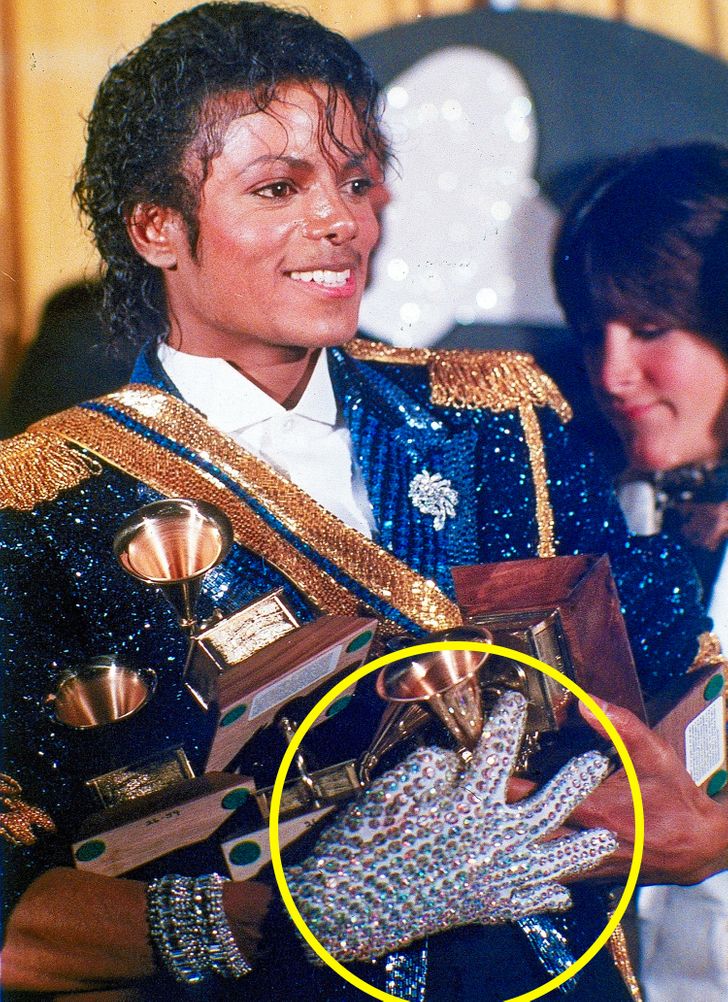
Michael had vitiligo, a skin condition where patches of your skin lose pigment. It started on his hand and he wanted to cover it up. And he thought it would look too ordinary to wear 2 gloves, so he would only wear one.
4. Why almost every jacket had an armband on the right sleeve
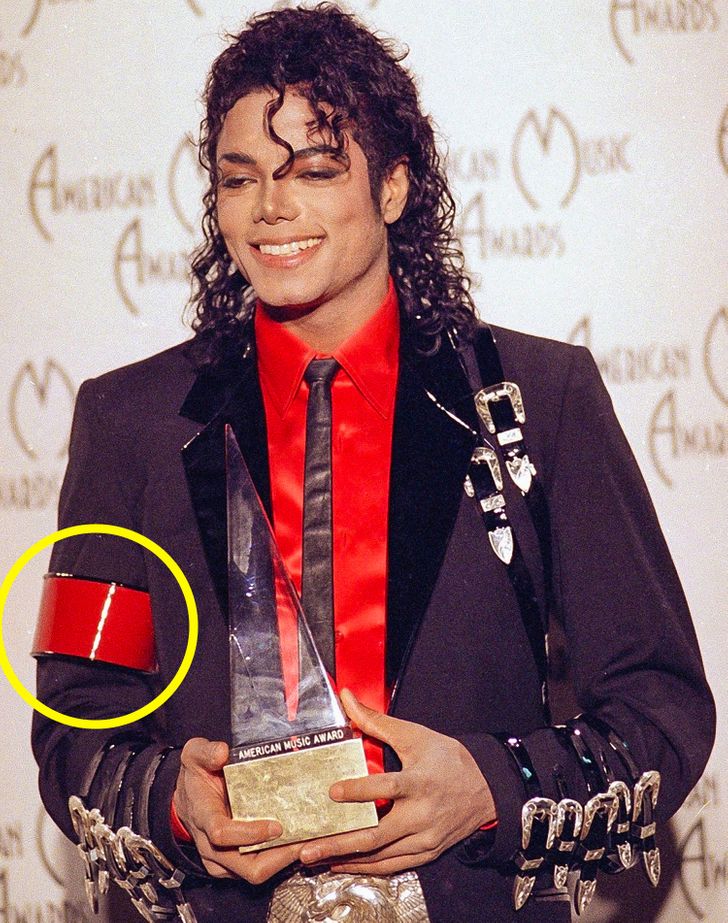
Michel Jackson just wanted his clothes to be different from everyone else’s. And having an armband on a sleeve makes your look distinguishable. Michael also liked to make his fans wonder why that armband was there.
5. Why there are 3 № 7s sewn onto his jackets
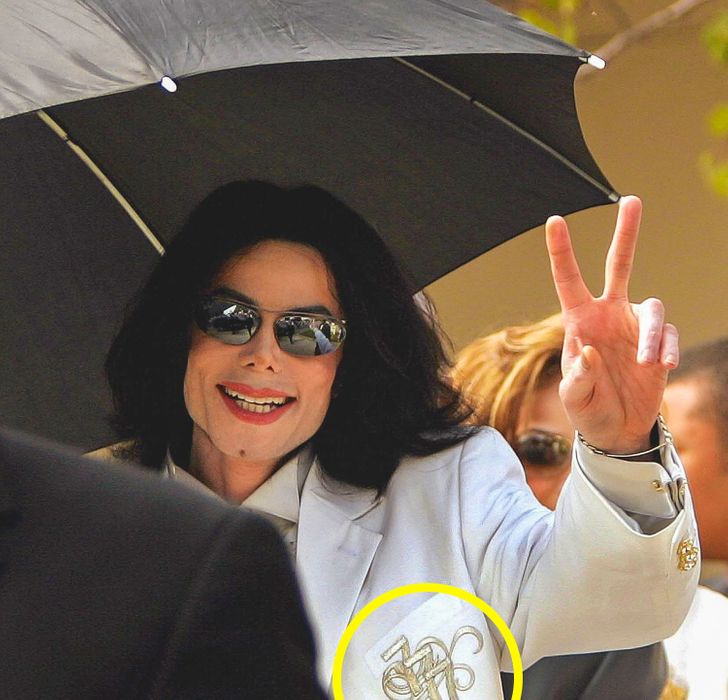
Michael was the 7th child in his family. Also, he was born in 1958, and if you add 19 plus 58, it equals 77.
6. Why he never polished his shoes
Once, the singer`s managers were concerned about the condition of his shoes and asked his costume designer to polish them. He did it, but it made Michael extremely angry. He explained that the leather was worn off exactly as he needed it to be, and that polishing would make it too slippery for him to perform his dance moves.
7. Why he wore white socks
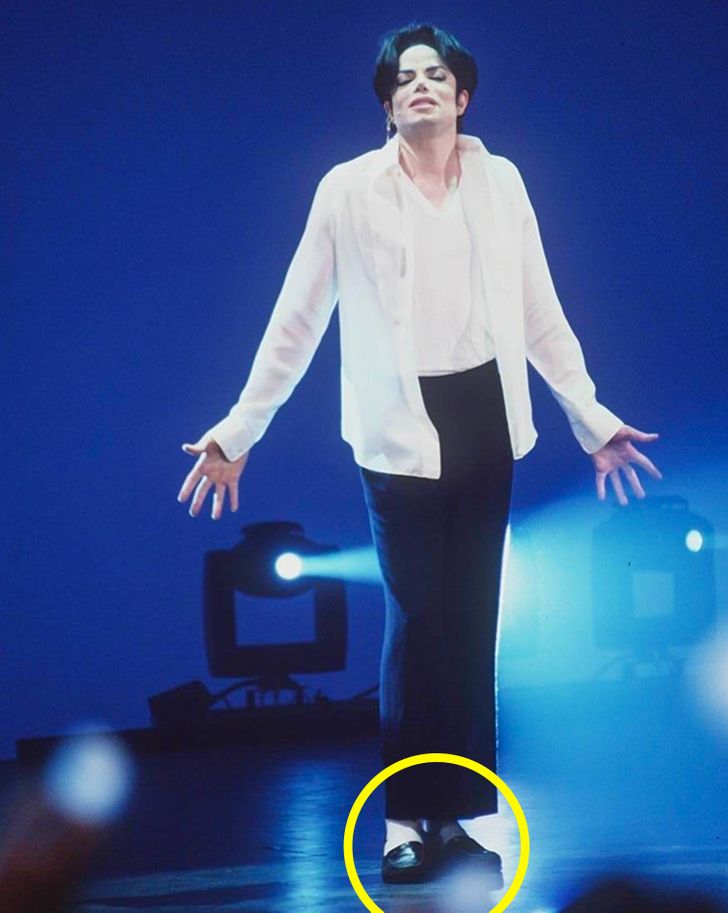
Michael loved wearing white socks for several reasons. No one else wore white socks with black shoes. Moreover, they would catch the light and attract attention to the movements of his feet when he was dancing.
8. Why he taped his fingers
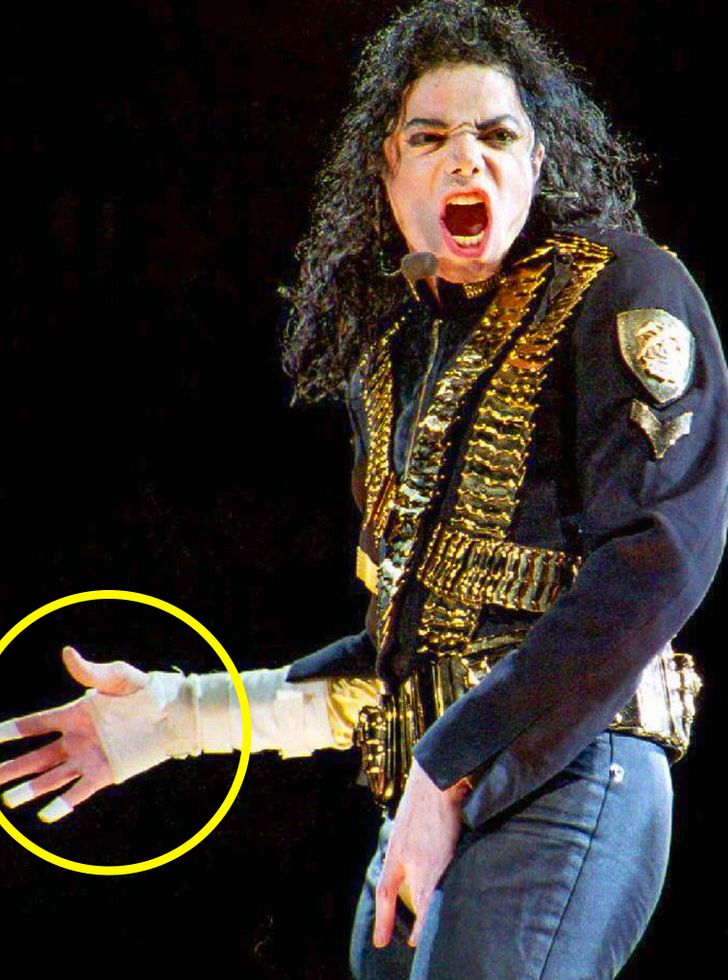
Hand movements were an important part of Michael Jackson`s dance routines. So he and his costume designers decided to wrap white tape around his fingers in order to attract more light. Michael also decided it would be more unusual to only tape his index, ring, and pinkie fingers. It was also fun for him, because fans would ask why only 3 of his fingers were taped.
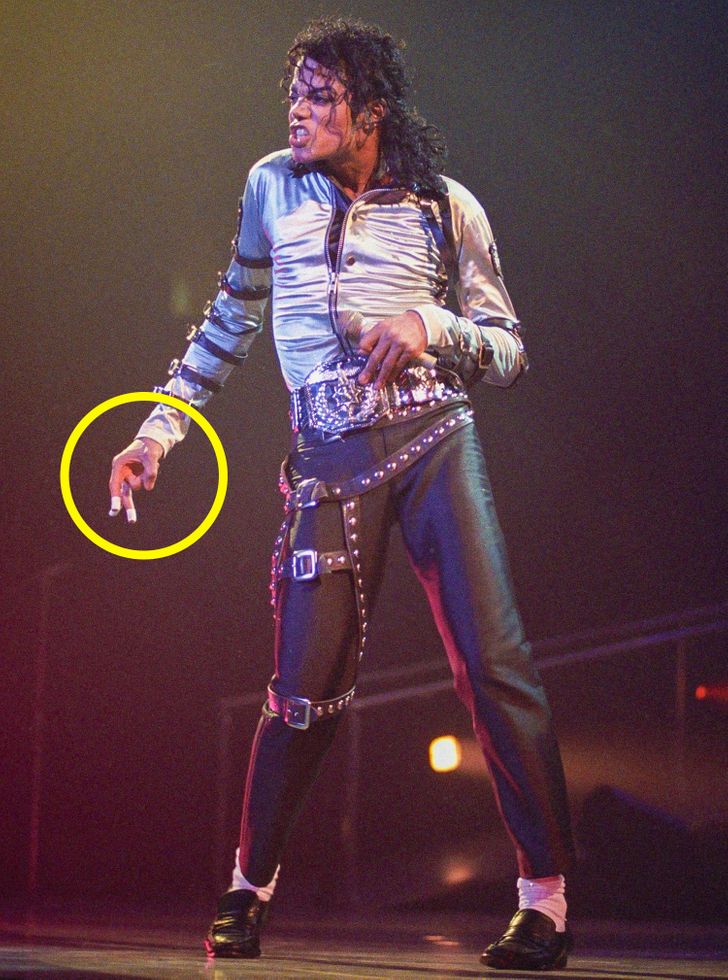
When Michael danced, he would unconsciously put his 2 untaped fingers together. And that would also add mysteriousness to his performances, since the fans would think this sign had a secret meaning.
9. What the letters CTE on his jackets stand for
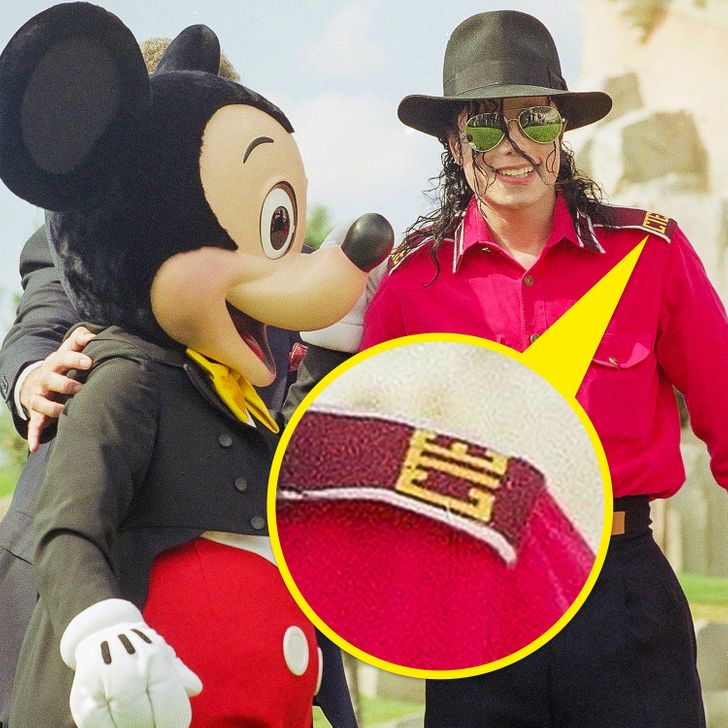
These letters don`t stand for anything. In the 90s, Michael`s costume designers created a few new shirts for him. He liked them, but he wanted to add some letters on the epaulets. He said it didn`t matter which ones, so his costume designers put all of the letters of the alphabet into a hat, and took 3 of them out at random. That`s where the letters “CTE” came from.
Do you think Michael Jackson had great taste in clothes? Is there any costume of his that you like in particular? We`d love to hear your thoughts in the comments!
Preview photo credit Smooth Criminal / Quincy Jones Productions



Leave a Reply